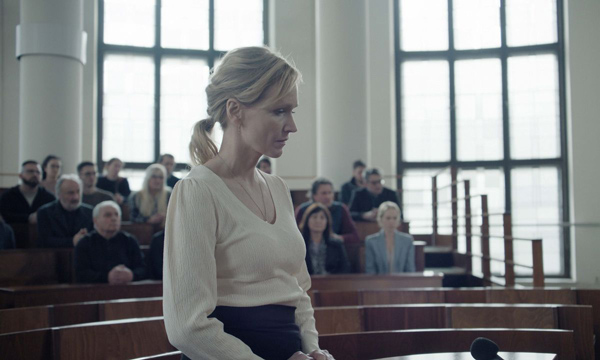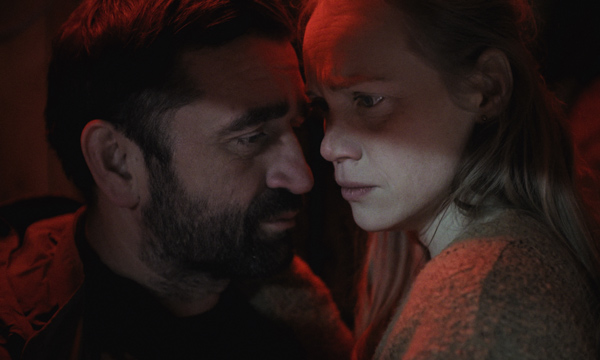A Penance for Your Thoughts: Nvotová Jumps into Void without Societal Parachutes
 For her third feature, Father (Otec), Slovak filmmaker Tereza Nvotová delivers a psychologically immersive portrait of a man in a complete free fall. Inspired by true events, the film takes a two-tiered approach to mapping its protagonist’s psyche: first deconstructing the architecture of the mind, and then exploring whether love (for one’s self) can persist when it appears utterly extinguished. Though it tells a story ripe for melodrama, the film remains profoundly absorbing by rejecting a wailing tone and it’s performances anchor a nightmare that feels universally familiar yet intimately, terrifyingly rare — onlookers are invited to live thru this.
For her third feature, Father (Otec), Slovak filmmaker Tereza Nvotová delivers a psychologically immersive portrait of a man in a complete free fall. Inspired by true events, the film takes a two-tiered approach to mapping its protagonist’s psyche: first deconstructing the architecture of the mind, and then exploring whether love (for one’s self) can persist when it appears utterly extinguished. Though it tells a story ripe for melodrama, the film remains profoundly absorbing by rejecting a wailing tone and it’s performances anchor a nightmare that feels universally familiar yet intimately, terrifyingly rare — onlookers are invited to live thru this.
Centering on a parent’s absolute worst nightmare, exploring the punishing, long-term consequences of a single fatal mistake—one that threatens to shatter a family’s very foundation. At its heart, it is a deeply human journey into the self, asking what remains when there is nothing left to lose. Milan Ondrík portrays the patriarch, whose life is initially captured through the quiet rituals of his daily routine (morning run, hot shower, quick breakfast included). His family domicile (shared with his equally busy mother/wife – actress Dominika Morávková re-teams with Nvotova again from 2017’s Filthy) plus child slowly moving up in age enough to merit a new child carseat. It’s a home of luxury, certain status, and possibly keeping up with the assigned socio-economic-group one belongs to.

Co-written alongside Dušan Budzak, the narrative demonstrates how a few minor deviations from this routine, fueled by the constant micro-pressures of modern life, can lead to unimaginable tragedy. Nvotova cleverly moves beyond the initial shock of a Forgotten Baby Syndrome incident to focus on the psychological prison of guilt that forms long before any criminal proceedings begin. The resulting drama charts the fracture of his marriage under the weight of his actions, as he is forced to discover if redemption is possible and whether a love pushed to its absolute limit can ever endure. Inspired by true events, while the media hounding of the couple and the courtroom power-play between lawyers (some arresting visuals give deeper meaning to another kind of chaos) feel slightly bestrewn, and unlike her sophomore outing in the more tonally polished feminist horror-drama Nightsiren, what fuels the drama are the exacting harrowing moments of solitude (a handful of long-takes capture just how run on empty after self-flagellation.

Richly photographed by Cinematographer Adam Suzin – notions of the world spiraling out of control are then replaced by an expansive and zeroing-in visual approach to jeers and jests found in the courtroom sequences; antagonistic forces drive Michal to absorb, defend and survive what feels like unimaginable loss for perpetuity. Father isn’t banking on miserablism cinema to gain perspective and nor is this the kind of film begging for apathy. Instead, we are fishing for the in-between moments (long-take cinema affords this) where a careless gift, a broken embrace, and just getting out of bed is a courageous act in itself.
Reviewed on August 28th at the 2025 Venice Film Festival (82nd edition) – Orizzonti section. 102 Mins.
★★★/☆☆☆☆☆


